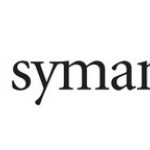- Branche: Computer
- Number of terms: 2033
- Number of blossaries: 0
- Company Profile:
Symantec Corporation is an computer security software corporation headquartered in Mountain View, California, United States. It is a Fortune 500 company and a member of the S&P 500 stock market index.
This acronym means "Hyper-Text Transfer Protocol" and refers the application-level protocol used to browse the World Wide Web. HTTP typically uses port 80/TCP.
Industry:Network hardware
This acronym means "File transfer protocol". The standard ports for FTP are 21/TCP (control) and 20/TCP (data). The firewall can pass FTP through its standard proxy, as well as browser FTP proxied through an HTTP connexion on 80/TCP.
Industry:Network hardware
Refers to the firewall's practise of concealing the IP addresses of hosts behind the firewall. For outbound traffic, the firewall, by default, substitutes its public IP address for the client's address in the source field of the packet. For inbound traffic, the firewall, by default, substitutes its private IP address for the client's address in the source field of the packet. Both of these practises can be changed by enabling client-side transparency on the firewall's outside and inside NICs, respectively. Due to routing restrictions, enabling client-side transparency on the firewall's outside NIC should never be done for those sites that use reserved addresses or illegal addresses behind the firewall.
Industry:Network hardware
This acronym means "Authentication Header", and refers to a protocol, within the IPSEC suite of protocols, for the authentication of IP data. The AH protocol is described in RFC 1826.
Industry:Network hardware
Refers to the networks and hosts protected by the firewall; that is, in the protected hosts and network. See also inside.
Industry:Network hardware
This acronym means "Classless Inter-Domain Routing", which is documented in RFCs 1517-1520.
Industry:Network hardware
The opposite of server-side transparency (see "transparent"). A transparent connexion (TCP) or data stream (UDP) in which the firewall is transparent to the server. In other words, the client's IP address, and not the firewall's IP address, is the source of the traffic on the server's side of the firewall. Typically used for inbound access, so that the server on the protected network can log the client's IP address or FQN.
Industry:Network hardware
The default gateway, which is also known as the "default route", or "route of last resort", is an IP networking configuration parameter. Clients behind the firewall should set their default gateway to either the inside IP address of the firewall or to a router whose default gateway points to the inside IP address of the firewall.
Industry:Network hardware
This acronym means "DNS daemon", and refers to the Raptor Firewall DNS proxy that is installed as part of the firewall. DNSd is one of the firewall's standard proxies.
Industry:Network hardware
The opposite of static authentication. In dynamic authentication, the usernames and passcodes for the authentication scheme exist on the authentication server and not on the firewall. Hence, the firewall dynamically (that is, on an "as needed" basis) gets usernames and passcodes for authentication. Dynamic authentication is supported for ACE, Defender (SNK), Radius, CRYPTOCard, TACACS+, and NT Domain.
Industry:Network hardware
